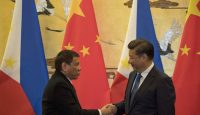
The United States’ Faltering Pivot to Asia
One of the hallmarks of US foreign policy under President Obama has been the attempt to reorient the direction of the State Department towards a rising Asia and away from the Middle East, where the Bush administration had invaded Iraq and Afghanistan. Despite the self-evident economic importance of Asia, and the rising challenge of China as a power second only to the United States, the task has not been easy. Try as the president has, extricating the US forces from Iraq and Afghanistan has proven difficult. The current assault on the ISIS-controlled Iraqi city of Mosul would be impossible without substantial US support including US Air Force attacks and substantial special forces involvement.… Seguir leyendo »


